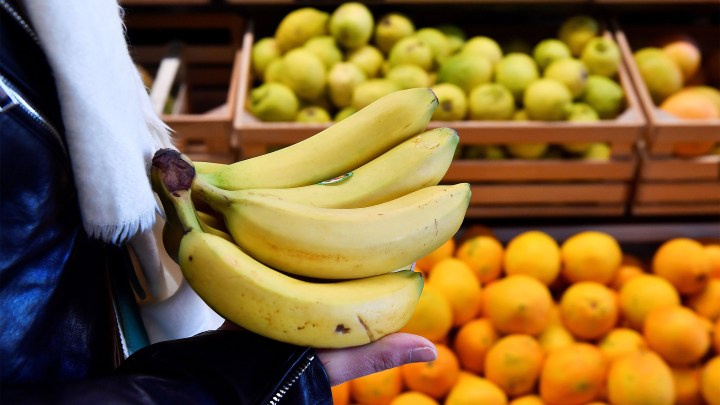
Inside the battle to save the banana

While international spotlight is on the spread of COVID-19, there’s another pathogen that scientists are struggling to contain: tropical race 4, or Panama disease. It doesn’t threaten human life but it’s endangering what the United Nations has deemed the world’s fourth most important food crop: the banana.
A startup in the English city of Norwich is leading the fight to save the banana from this disease.

“We are changing the banana genetics to make it more resistant to Panama disease and other diseases,” said Gilad Gershon, CEO of Tropic Biosciences, on a recent tour of the company’s laboratory.
For 20 years, Panama disease — a fungal infection — has been spreading across the tropics. Last year it surfaced in Latin America, where most of the world’s bananas for export are grown. Worldwide, banana exports have been valued at about $13 billion a year
“The industry already lives on a very low margin and any disruption of that could have a catastrophic effect for the industry and the major players in it,” Gershon said.
Tropic Biosciences is editing out the genes that make the banana vulnerable to the disease. Gene editing is likely to be met with less resistance from international consumers and regulators than genetic modification, which involves adding DNA of different organisms.
“People may be happier about gene editing because it doesn’t introduce new genes,” said Dr. Dan Bebber, a plant expert at Exeter University.
Nevertheless, the gene editing procedure has fallen foul of the European Union’s anti-genetic modification regulations and therefore Tropic Bioscience’s bananas would be barred from sale in the EU.
“Europe accounts for about 30% of global imports. It’s a big chunk of the market,” conceded Gershon. “But this is the reality we have to live with. And there’s a very big world outside Europe; 70% of the market is available to us.”

Genetic engineering is not the only way to save the banana. Dr. Bebber, who leads an initiative investigating the resilience of banana production and supply, the BananaEx Project, points out that the export trade is particularly vulnerable because it relies on a single strain of the fruit, the Cavendish, which is particularly susceptible to Panama Disease.
“We need to think about the diversity of the plants we’re growing. And there are scientific research groups around the world looking at breeding new types of bananas, as well as the other approaches like gene editing,” said Dr. Bebber.
With big money at stake, Tropic Biosciences won’t be the only contestant in the race to save the banana. But it will hold its first field trials later this year and plans to have its banana seeds that are resistant to Panama Disease on the market within four years.
There’s a lot happening in the world. Through it all, Marketplace is here for you.
You rely on Marketplace to break down the world’s events and tell you how it affects you in a fact-based, approachable way. We rely on your financial support to keep making that possible.
Your donation today powers the independent journalism that you rely on. For just $5/month, you can help sustain Marketplace so we can keep reporting on the things that matter to you.











